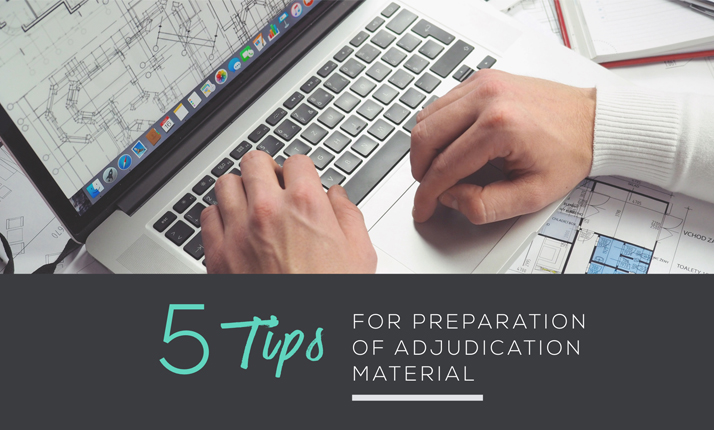Our Director, Aleisha MacKenzie, recently shared in a webinar 5 tips for the preparation of adjudication applications and responses under the Building Industry Fairness (Security of Payment) Act 2017 (BIF Act). These tips are drawn from Aleisha’s experience as a construction lawyer and an adjudicator, having decided over 50 adjudication decisions.
TIP #1 – Know your contract and administer it properly
It is surprising how many claimants and respondents do not actually understand their contract and/or have not properly administered their contract, but then attempt to rely on it at the time of an adjudication.
An adjudicator must consider the terms of the contract when making his/her decision. The adjudicator cannot simply throw it out the door and decide an entitlement to payment based on “fairness”, for example.
Both claimants and respondents should ensure that they:
- follow contractual procedures for claiming (and approving or denying) variations;
- follow contractual procedures for claiming (and approving or denying) extension of time and delay damages; and
- know and understand the payment mechanisms under the contract.
TIP #2 – Be aware of relevant timeframes
The BIF Act imposes strict timeframes for the adjudication process. If you are not aware of those timeframes, it can be a very costly mistake.
The purpose of this article is not to set out all of those timeframes but to highlight the importance for both claimants and respondents to diarise these important timeframes on each project.
If you are not aware of what those timeframes are, you should seek advice or undertake some training to ensure that rights are not lost.
TIP #3 – Provide sworn evidence (for example by way of statutory declaration)
Each party should establish the facts and tell their story in statutory declarations which attest to the truth of what is being said.
Adjudicators need to consider both parties’ position and then make a decision on which “facts” are more credible. For example, evidence given in a statutory declaration by someone who was on site or involved in a conversation is going to carry more weight than general submissions prepared by a company’s administration person who was not on site or a party to that conversation.
Sworn evidence should be given by all key personnel and set out the background to the matter, including how the contract was formed and the terms of the contract (if the terms of the contract were not clearly written). Where relevant it should also give details of any conversations or meetings had, including who was present and what was said.
If you have documents that support your position, those documents should be attached to the statutory declaration and clearly numbered and referenced.
TIP #4 – Remember – Entitlement and Value
The majority of claims are lost because the claimant has failed to explain why, under the contract, they are entitled to be paid.
For example, when claiming a variation the claimant must not only prove they have carried out the work, but they must explain why the work was outside the scope of work under the contract and provide evidence of how they have followed the contractual procedure to claim the variation.
Then, after establishing an entitlement to the variation under the contract, the claimant must prove the value by reference to the contractual rates or other evidence to support the value.
TIP #5 – Consider your conduct
Both the respondent and claimant should present all of their material and arguments clearly to assist the adjudicator in making their decision.
If you are the respondent, do not attempt to include new reasons for non-payment not included in a payment schedule as it only adds to time and cost to the adjudication process.
It is also important to be aware that adjudicators must decide whether claims are vexatious or frivolous (for example, a claim must not be brought to simply to harass or bring financial burden to the other party nor can it be a claim that clearly has no merit).
Adjudicators must also consider the conduct of the parties when deciding who pays their fees and expenses and they may consider, for example, whether either party participated in the adjudication for an improper purpose.
If you require assistance in preparing your adjudication application or responses contact Aleisha at Aleisha@constructlaw.com.au
This article is provided for general information and educational purposes only and does not constitute legal advice. Readers should obtain appropriate independent legal advice based on their own specific circumstances




